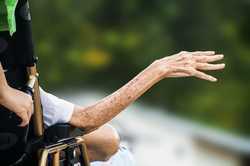
Neglectful incontinence care can inflict physical and emotional injuries on nursing home residents. Facilities and staff can be held liable for causing these injuries. When residents are not properly cared for, their emotional state declines and their physical health deteriorates. These wounds diminish their quality of life and can shorten their lifespan.
Incontinence in Nursing Homes
Approximately 50% of elderly nursing home residents experience incontinence. The older the individual, the greater the likelihood that the person will lose control over his or her bowels and bladder. Incontinence isn’t just physiological. It can also be caused by psychological factors including depression.
There are four types of incontinence. Stress incontinence stems from poor bladder control. This causes urine to leak when the individual coughs, sneezes, or exercises.
Individuals can also experience urge incontinence. This occurs because of overactivity within the bladder and causes the individual to feel a sudden, intense urge to empty the bladder.
Overflow incontinence is caused by poor bladder function or blockages within the urethra. This causes a steady dribble of urine caused by the bladder’s inability to void completely.
Finally, functional incontinence occurs when medications or poor mental health make it difficult for individuals to reach the bathroom or determine when they need to go to the bathroom. Physical conditions such as arthritis can also make it difficult to unfasten clothing when residents reach the bathroom.
Nursing home staff have a duty of care that includes properly supervising patients for signs of incontinence. They must also assist patients who need help using toilet facilities. Nursing homes cannot deny access to toilets as a form of control or punishment.
Physical Injuries & Incontinence
Incontinence can introduce bacteria and viruses into the bloodstream if urine or fecal matter make contact with open wounds or through mucous membranes. This can cause life-threatening infections. Individuals with incontinence may wear adult diapers that can cause rashes and reduce the protective barrier provided by the skin. Individuals may also suffer persistent and difficult to treat urinary tract infections.
Emotional Injuries
People who live with incontinence can exhibit signs of anger and depression. Many reduce their physical activity and social engagement. This creates a downward spiral of emotional health. This can exacerbate existing mental health conditions, facilitate suicidal thoughts, and increase the risk of developing dementia or Alzheimer’s.

